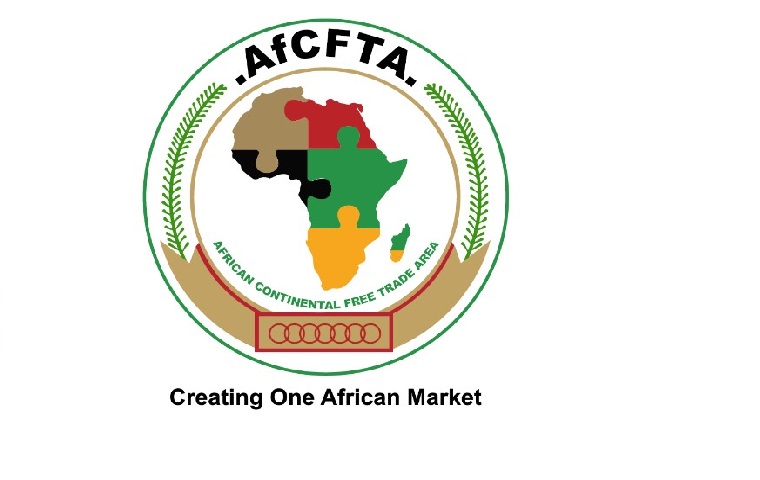Economic experts have said that Nigeria’s active participation in the African Continental Free Trade Agreement is seen as a significant opportunity to boost regional trade and drive economic growth across the African continent.
They stated that Nigeria, with its status as Africa’s largest economy and most populous nation, holds a pivotal role in promoting industrialisation, diversification of exports, and sustainable development through AfCFTA.
As of 2023, Nigeria’s reliance on oil exports was huge, with non-oil exports accounting for less than 10 per cent of total exports. This over-dependence on oil has long been a challenge, but the AfCFTA presents a way for Nigeria to move beyond oil by expanding its export base. The agreement grants access to a market of over 1.3 billion people and a combined GDP of $3.4tn.
Experts say that this presents an opportunity for Nigeria to promote agricultural products, manufactured goods, and services, with sectors such as fintech poised for regional growth, given Africa’s increasing digitalisation.
A report from the Nigerian Export Promotion Council highlights that targeted export initiatives could increase non-oil revenue by up to $30bn annually by 2035. This aligns with the AfCFTA’s objective to boost intra-African trade by 52.3 per cent by 2025.
Speaking recently on Nigeria’s potential role, United Nations Deputy Secretary-General, Amina Mohammed, called on Nigeria to harness AfCFTA to lead the charge for regional growth and economic development.
“The AfCFTA presents an unparalleled opportunity for Nigeria to position itself as an economic powerhouse in Africa,” said Mohammed, further emphasising the UN’s support in helping Nigeria achieve its development priorities.
Also, the Minister of Finance and the Coordinating Minister of the Economy, Wale Edun, acknowledged the steps taken by the Tinubu administration in tackling socio-economic challenges.
He pointed out the ongoing efforts to digitise programmes like the Direct Benefit Transfers, which aim to ensure greater efficiency and transparency in addressing the needs of the most vulnerable.
According to Olusegun Awolowo, the National Coordinator of the Nigeria AfCFTA Coordination Office, the agreement capitalises on Africa’s vast resources to foster industrialisation, create job opportunities for the continent’s youthful population, and promote inclusive economic growth.
He stressed that trade is the key to sustainable prosperity, urging Nigeria to focus on increasing exports to overcome challenges like poverty, unemployment, and economic stagnation.
However, challenges persist, particularly trade barriers. Nigeria’s 2019 border closure highlighted the significant impact of poor cross-border policies. To fully benefit from AfCFTA, experts call for streamlined customs processes, reduced tariffs, and an overall improvement in infrastructure.
A trade economist, Dr Obinna Eze, said, “Nigeria has the resources and market size to lead Africa’s economic integration. However, the government must create enabling policies and tackle infrastructure deficits to ensure competitiveness.”
The World Bank has projected that full implementation of AfCFTA could lift 30 million Africans out of extreme poverty, with Nigeria set to be a major beneficiary.
However, it cautioned that Nigeria’s transport networks and high logistics costs continue to undermine its trade competitiveness. To address these challenges, infrastructure investments such as the Lagos-Ibadan railway and the Lekki Deep Sea Port are crucial to improving regional trade facilitation.
According to the African Development Bank estimates, it indicated that Africa’s annual infrastructure financing gap ranges from $68bn to $108bn. Closing this gap will be vital for AfCFTA’s success, enabling the continent to realize its economic potential.
A PwC 2023 report forecasted that industrialised nations in Africa, including Nigeria, could see a 40 per cent GDP growth by 2030 under AfCFTA. Nigeria’s focus on value-added sectors like textiles, agro-processing, and pharmaceuticals is expected to create millions of jobs and attract foreign investment.
It further noted that AfCFTA places industrialisation at the core of its growth strategy, urging Nigeria to promote local manufacturing to stay competitive.
Policy analyst, Amina Bello, also highlighted that small and medium enterprises in Nigeria stand to benefit greatly from access to larger markets under AfCFTA. With the right support in funding and training, these businesses can drive both local and regional development.
However, Bello pointed out that AfCFTA’s success in Nigeria will depend on addressing critical challenges like corruption, inconsistent policies, and power shortages.
She stressed that Nigeria needs to invest in vocational training to close skill gaps and prepare its workforce for the demands of regional competition.
“Policymakers must act decisively to ensure that Nigeria’s engagement with AfCFTA fosters national prosperity and drives Africa’s collective economic transformation,” she concluded.















